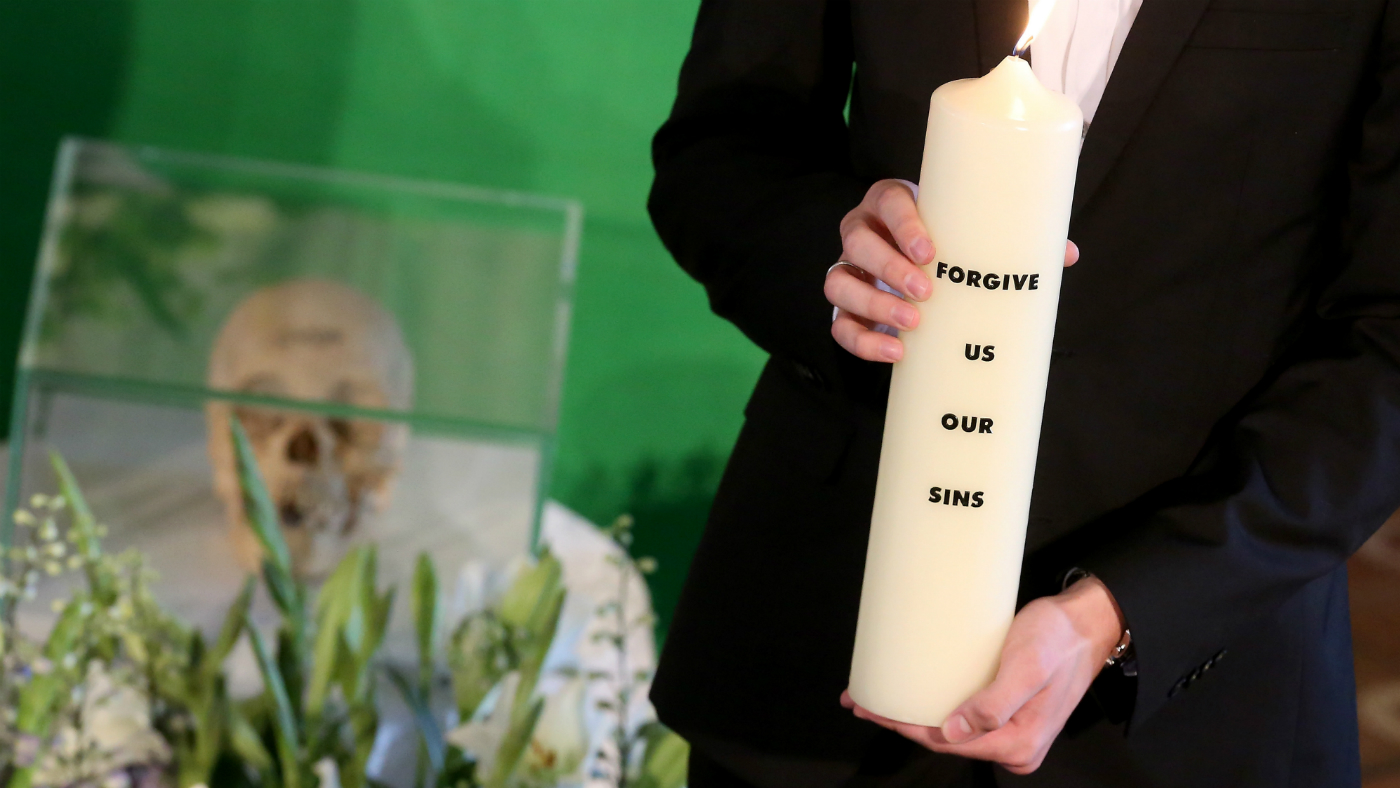Germany’s other genocide: Namibians sue over colonial slaughter
Berlin returns remains of massacred indigenous people but descendants still waiting for apology

A free daily email with the biggest news stories of the day – and the best features from TheWeek.com
You are now subscribed
Your newsletter sign-up was successful
Berlin has returned the remains of indigenous Namibian people slaughtered during Germany’s brutal occupation of the southwest African nation a century ago.
Thousands of people from the Herero and Nama ethnic groups were killed, tortured or raped during Germany’s occupation of the region, then known as German South West Africa, between 1904 and 1907 - atrocities that have been described as the “20th century genocide the West forgot”.
The human remains had been stored in hospitals, museums and universities for decades, after being used for discredited “scientific” experiments that purported to prove the racial superiority of white Europeans, reports news site France 24.
The Week
Escape your echo chamber. Get the facts behind the news, plus analysis from multiple perspectives.

Sign up for The Week's Free Newsletters
From our morning news briefing to a weekly Good News Newsletter, get the best of The Week delivered directly to your inbox.
From our morning news briefing to a weekly Good News Newsletter, get the best of The Week delivered directly to your inbox.
The skulls and bones were returned to a Namibian government delegation during a church ceremony in Berlin on Wednesday.
However, many Namibians - including public officials and politicians - claim that Germany has failed to adequately recognise or take responsibility for the killings. Germany has never formally admitted claims of genocide.
In 2016, “Germany said it was prepared to apologise in principle but it is still negotiating with the Namibian government over the form of the apology and how to deal with the legacy of the genocide”, says the BBC.
Vekuii Rukoro, a Namibian lawyer, politician and Herero representative, had strong words for the government of Angela Merkel at the Berlin ceremony.
A free daily email with the biggest news stories of the day – and the best features from TheWeek.com
“Genocide. That’s what we call it back home. That’s what German opposition MPs are calling it, that’s what the German public is calling it, that is what the world opinion is calling it,” Rukoro said.
“The only people - who after five years of painstaking negotiations - are unable to come to the same conclusion and agreement are the German and the Namibian government. Something is wrong with our two governments.”
Fellow Namibian representative Manase Zeraek added: “We are all united in one thing: we are all demanding that Germany must accept that it committed genocide in one country.
“We are in agreement that they must apologise and that they must pay reparations.”
Germany has refused to pay any form of reparation to date, reports Deutsche Welle. “The German government considers that the use of the term ‘genocide’ does not entail any legal obligation to reparations but rather political and moral obligations to heal the wounds. We’re sticking to that position,” Ruprecht Polenz, Germany’s negotiator in the Namibia talks, told the German newspaper in 2016.
Descendants of the victims filed a US federal lawsuit against Germany in 2017 under the Alien Tort Statute, “an unusual law that has allowed foreigners to sue perpetrators of human rights violations”, reports Washington DC-based news site NPR. The case is ongoing.
-
 Political cartoons for February 22
Political cartoons for February 22Cartoons Sunday’s political cartoons include Black history month, bloodsuckers, and more
-
 The mystery of flight MH370
The mystery of flight MH370The Explainer In 2014, the passenger plane vanished without trace. Twelve years on, a new operation is under way to find the wreckage of the doomed airliner
-
 5 royally funny cartoons about the former prince Andrew’s arrest
5 royally funny cartoons about the former prince Andrew’s arrestCartoons Artists take on falling from grace, kingly manners, and more
-
 Epstein files topple law CEO, roil UK government
Epstein files topple law CEO, roil UK governmentSpeed Read Peter Mandelson, Britain’s former ambassador to the US, is caught up in the scandal
-
 Iran and US prepare to meet after skirmishes
Iran and US prepare to meet after skirmishesSpeed Read The incident comes amid heightened tensions in the Middle East
-
 Israel retrieves final hostage’s body from Gaza
Israel retrieves final hostage’s body from GazaSpeed Read The 24-year-old police officer was killed during the initial Hamas attack
-
 China’s Xi targets top general in growing purge
China’s Xi targets top general in growing purgeSpeed Read Zhang Youxia is being investigated over ‘grave violations’ of the law
-
 Panama and Canada are negotiating over a crucial copper mine
Panama and Canada are negotiating over a crucial copper mineIn the Spotlight Panama is set to make a final decision on the mine this summer
-
 Why Greenland’s natural resources are nearly impossible to mine
Why Greenland’s natural resources are nearly impossible to mineThe Explainer The country’s natural landscape makes the task extremely difficult
-
 Iran cuts internet as protests escalate
Iran cuts internet as protests escalateSpeed Reada Government buildings across the country have been set on fire
-
 US nabs ‘shadow’ tanker claimed by Russia
US nabs ‘shadow’ tanker claimed by RussiaSpeed Read The ship was one of two vessels seized by the US military